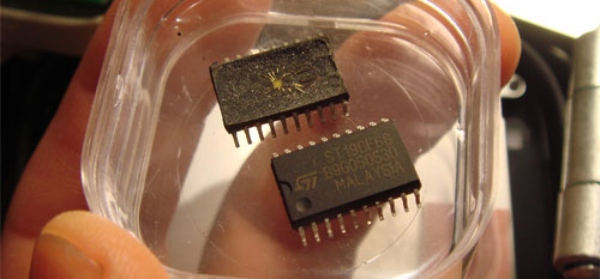Fake circuits. Fake circuits everywhere
There is only one thing worst than waiting months for a shiny new computer.
And that thing is getting one with fake, faulty microchips inside.

The global chip shortage is making much harder for microelectronics manufacturers to avoid using fake components.
Products like iPhones or Playstations are probably not affected, because all major companies usually purchase components directly from chip manufacturers.
Low-volume manufacturers, instead, are in a completely different situation. Basically, says ZDNet, they face the same problems of high-fashion firms, but with potentially much more dangerous consequences. Buying a “Gucci” bag made by child labor from fake leather is obviously very bad, but at least does not endanger the health of whoever carries it.
Using an insulin detector with a sensor that may output bogus values after a month of usage is a totally different matter. Besides healthcare, the problem affects other critical sectors as defense, healthcare and even automotive (adding to its SOFTWARE problems!).
This is not entirely new: the US Military found more than one million counterfeit electronic parts were being used in its own equipment in 2012. And the images in this post come from a blog post on “Counterfeit Chips in 2007”.
This coming surge of counterfeited chips, however, is likely to be much bigger, in a world that depends on microelectronics quite more than 10 or 15 years ago. Of course, it is mostly due to COVID-19, that turned supply chains upside down across the world, made them highly unpredictable, and thus placed enormous pressure on small manufacturers.
The result is that if today a company must either find 5,000 parts in one week or shut down an assembly line, it will not “keep to [its] rules of verifying the vendor or going through test processes." Due diligence requires time that some businesses just cannot afford to spend in the current context. That is the golden opportunity that electronic component counterfeiters and fraudsters are going to exploit, usually by sneaking their products through third-party distributors:
“We’re seeing companies that have never been rated by any other company in the industry showing significant quantities of parts that are in shortage. But what sounds too good to be true is too good to be true."
There may be only two options here
The general problem will not disappear with COVID-19 (and, of course, may reappear with any other pandemic), because “the harsh reality is that today, the authenticity of chips is often impossible to guarantee".
In the short term, the only viable, if painful, solution for business is going to be, according to the experts interviewed by ZDNet, “carrying out due diligence, no matter how long it might take”.
At the higher level, the only working solution may be much simpler to explain, but much harder to accept: buy only electronics that you really need, and vote to get past GDP and stock value as the only parameters driving the economy.
Who writes this, why, and how to help
I am Marco Fioretti, tech writer and aspiring polymath doing human-digital research and popularization.
I do it because YOUR civil rights and the quality of YOUR life depend every year more on how software is used AROUND you.
To this end, I have already shared more than a million words on this blog, without any paywall or user tracking, and am sharing the next million through a newsletter, also without any paywall.
The more direct support I get, the more I can continue to inform for free parents, teachers, decision makers, and everybody else who should know more stuff like this. You can support me with paid subscriptions to my newsletter, donations via PayPal (mfioretti@nexaima.net) or LiberaPay, or in any of the other ways listed here.THANKS for your support!